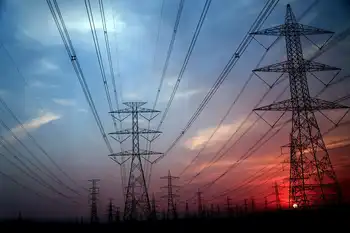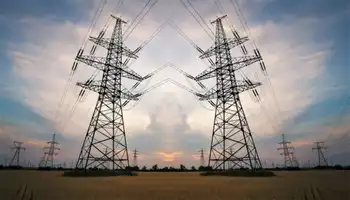N.C. Utilities Commission approves only one generator at Duke plant
By Herald-Sun
CSA Z463 Electrical Maintenance
Our customized live online or in‑person group training can be delivered to your staff at your location.

- Live Online
- 6 hours Instructor-led
- Group Training Available
It was a decision greeted tepidly by the Charlotte-based company, which had told the North Carolina Public Utilities Commission it needed both units to meet increasing consumer demand.
"Our decision will not be made until we have seen the final cost estimates," said Ellen Ruff, president of Duke Energy Carolinas. "Our initial estimates were based on two units, and the commission only authorized one unit."
The utility, which had said it would cost $3 billion to build two generators, did not have firm data on the cost for just one. Duke also pointed out the project has yet to win approval from state and federal environmental regulators.
"It is only prudent for us to make a decision after all these key facts have been reviewed and validated," said James Rogers, Duke's chairman and chief executive.
The commission said Duke failed to prove it needs both units, and noted the utility was considering putting as much as half the power generated by a two-unit facility on the wholesale market.
"This should be the end of the project since Duke admitted (in public hearings) it cannot build economically just one coal-fired unit," said Jim Warren, director of the North Carolina Waste Awareness and Reduction Network.
Should Duke proceed, the commission said Duke must also invest 1 percent of its annual retail revenues from electricity sales in energy efficiency programs. Opponents said they hoped such programs would become so successful that Duke would later decide against building the new unit at Cliffside.
They noted that Rogers has joined chief executives of nine other major U.S. corporations to push for a nationwide limit on carbon dioxide emissions in order to combat global climate change.
"It's clear to me that if (Rogers) is serious about energy efficiency, building these coal plants would have sucked all the air out of the room," said Stephen Smith, director of the Southern Alliance for Clean Energy.
The permission to build the single unit at the Cliffside Steam Station in Rutherford County was also made conditional on retiring the station's four existing 100-megawatt units as soon as the new generator is operational.
One of the six commissioners, Robert V. Owen Jr., dissented, saying the application should have been entirely denied. The brief "notice of decision" is to be followed by a more detailed ruling.
Duke Energy, with 2.2 million customers in the Carolinas, first sought a permit for the Cliffside generators in May 2005, saying they would be the most reliable, acceptable way of meeting increasing demand.
Opponents argued - and the company acknowledged - that the project would lead to more carbon dioxide emissions, and complained that Duke Energy didn't fairly consider adding capacity through conservation or renewable fuels such as solar or wind.
Critics were also angered this fall when the company restated the full project's cost as $3 billion, 50 percent more than originally estimated.
Several opponents said they will now shift their attention to the state Division of Air Quality, which must decide whether to grant an air quality permit. That permit must also be approved by the federal Environmental Protection Agency.
"This is really only the first step in the process for Duke," said Gudrun Thompson, an attorney with the Southern Environmental Law Center. "We are going to be very involved in fighting the air quality permit for this plant."
The ruling comes in the same week that environmentalists received an olive branch from a group of private investors who propose to buy the largest electric utility in Texas for $32 billion. The investors said they would drop plans to build eight of the 11 new coal-burning plants proposed by TXU Corp. if the deal - potentially the largest private buyout in history - goes through.











